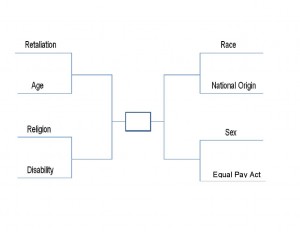A pair of recent decisions from the Superior Court of Massachusetts illustrates the role a former employee’s social media activity now plays in restrictive covenant cases.
In KNF & T Staffing , Inc. v. Muller, 31 Mass. L. Rptr. 561 (2013), Ms. Muller had signed an Employee Confidentiality and Non-Competition Agreement when she began her employment with KNF & T, a staffing firm with offices in Boston and Westboro. Ms. Muller’s non-competition covenant prohibited her from placing personnel in the “Company’s Fields of Placement,” which was defined primarily as “the placement of administrative and office support staff . . . .” Ms. Muller worked with KNF & T for eight years, receiving numerous promotions and raises, and eventually became a Vice President and manager of the Company’s Boston temporary staffing division (the largest and most profitable business unit). She was also in charge of the company’s largest account. Ms. Muller resigned from KNF & T in April 2013 and about 5 months later, began working for Panther Global Group, Inc. and its subsidiary, Total Clerical Services, Inc., a staffing firm headquartered in Boston and a direct competitor with KNF & T in some areas. KNF & T promptly filed suit and sought an injunction.
In determining whether Ms. Muller had breached her employment agreement, the Court stated, “[T]he evidence that Muller has violated—or that she necessarily will violate—the covenants in her agreement with KNF & T. . . is somewhere between very weak and nonexistent.” Specifically, in footnote 5 of the opinion, the Court considered Ms. Muller’s LinkedIn profile, which disclosed her current employer, title, and contact information. Ms. Muller’s “Skills & Expertise” on LinkedIn included “Internet Recruiting,” “Temporary Staffing,” “Staffing Services,” and “Recruiting.” The Court found that there was no specific mention of KNF & T’s “Fields of Placement” and that, unless Ms. Muller solicited or accepted business in the “Fields of Placement” prior to the expiration of the restrictive covenants, she “will not have violated the covenant not to compete.”
Somewhat similarly, in Individa, LLC v. DiFonzo, 30 Mass. L. Rptr. 390 (2012), a hair stylist, Ms. DiFonzo, signed a Covenant Not to Compete, Non-Solicitation, and Confidentiality Agreement when she began her employment with Invidia. Ms. DiFonzo eventually resigned from Invidia and began working at another salon. Four days after Ms. DiFonzo resigned from Invidia, Ms. DiFonzo’s new employer posted a “public announcement” on her Facebook page, referencing Ms. DiFonzo’s new affiliation with her new employer. One of Invidia’s clients commented on the post saying, “See you tomorrow Maren [DiFonzo]!” The client then cancelled her appointment at Invidia for the next day. Further, Ms. DiFonzo had become Facebook “friends” with at least eight clients of Invidia. The Court held that these two facts were not enough to constitute a solicitation of Invidia’s customers because there was no evidence that Ms. DiFonzo had suggested to anyone on Facebook that they should take their business to her new employer.
These two cases demonstrate that, as the use of social media sites for business purposes continues to grow, courts will increasingly consider former employees’ social media activity in determining whether the employee has breached restrictive covenants. While these two decisions suggest that general references to a new employer may not constitute a breach of a covenant (at least in Massachusetts), more specific posts encouraging clients to move their business to a new employer may be a different story.
